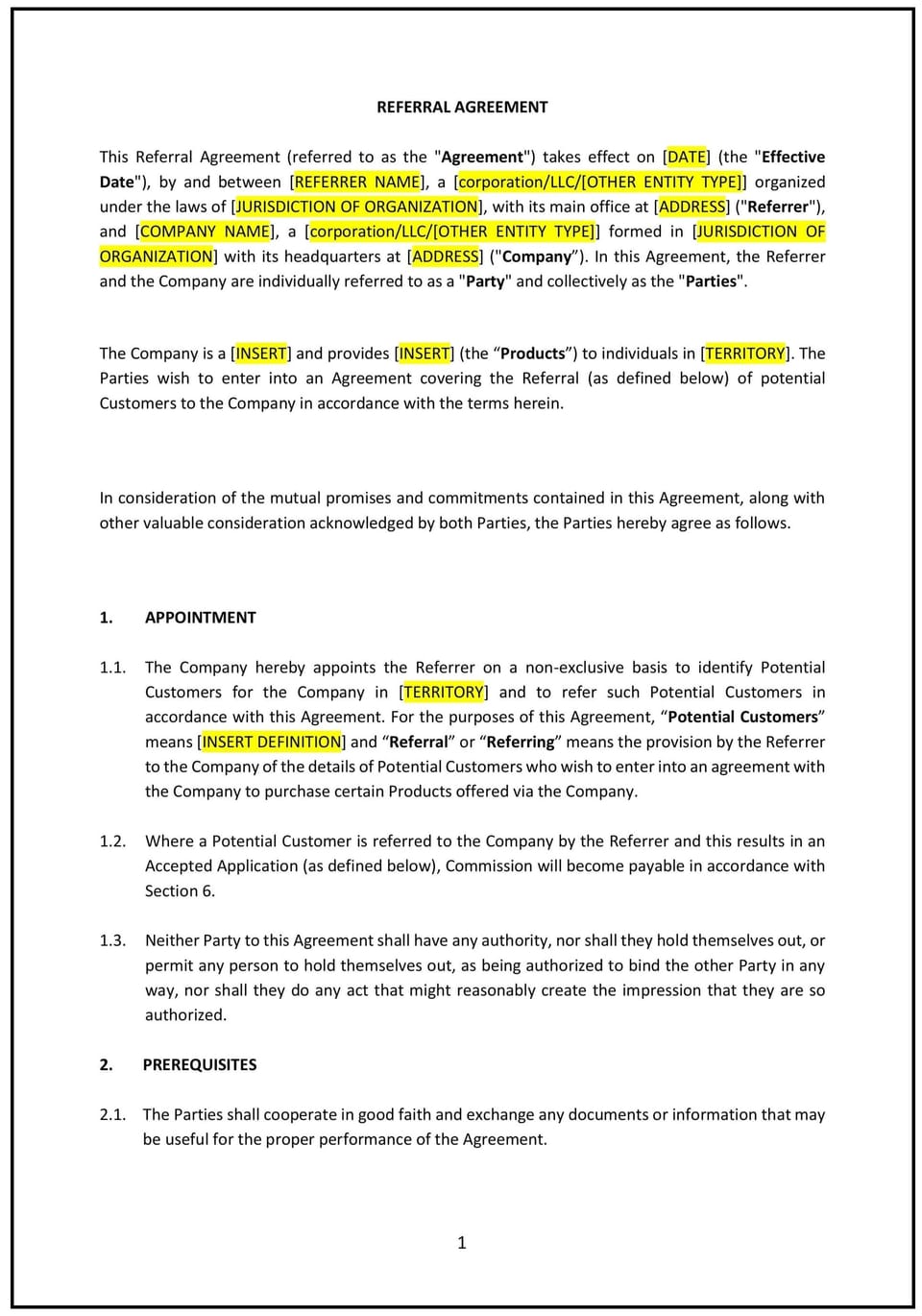Referral Agreement (California): Free template

Referral Agreement (California)
A Referral Agreement in California is a contract between a business and a referrer that outlines the terms under which referrals will be made and compensated. This agreement ensures clarity on referral fees, payment schedules, and obligations, reducing potential disputes. It is commonly used in industries such as real estate, consulting, and sales, where businesses rely on third-party referrals to acquire clients.
Businesses in California use this agreement to formalize referral relationships, incentivize lead generation, and establish clear expectations regarding compensation and performance. It helps protect both parties by defining the referral process, payment terms, and any exclusivity clauses.
Tips for drafting and maintaining a Referral Agreement in California
- Define what qualifies as a successful referral to prevent disputes over commissions.
- Specify payment terms, including commission rates, invoicing procedures, and timing of payouts.
- Clarify whether the agreement is exclusive or non-exclusive.
- Include confidentiality and non-circumvention clauses to protect business relationships.
- Ensure compliance with California laws, particularly regarding commission payments and restrictions on referral fees in regulated industries like real estate and legal services.
Frequently asked questions (FAQs)
Q: What should California businesses include in a Referral Agreement?
A: Businesses should include referral fee structure, payment terms, qualifying criteria for referrals, confidentiality provisions, and termination clauses.
Q: How does a Referral Agreement benefit businesses in California?
A: It provides a structured way to reward referrals, ensuring fair compensation while protecting business relationships.
Q: Are referral fees enforceable under California law?
A: Yes, but the agreement must be clearly written, and payments must comply with California commission laws. Certain industries, such as real estate and legal services, have restrictions on referral fees.
Q: Can a Referral Agreement in California include an exclusivity clause?
A: Yes, businesses can specify whether referrers are allowed to promote competing services.
Q: How should businesses handle disputes in a Referral Agreement?
A: Businesses should include a dispute resolution clause specifying mediation, arbitration, or court jurisdiction in California.
This article contains general legal information and does not contain legal advice. Cobrief is not a law firm or a substitute for an attorney or law firm. The law is complex and changes often. For legal advice, please ask a lawyer.


